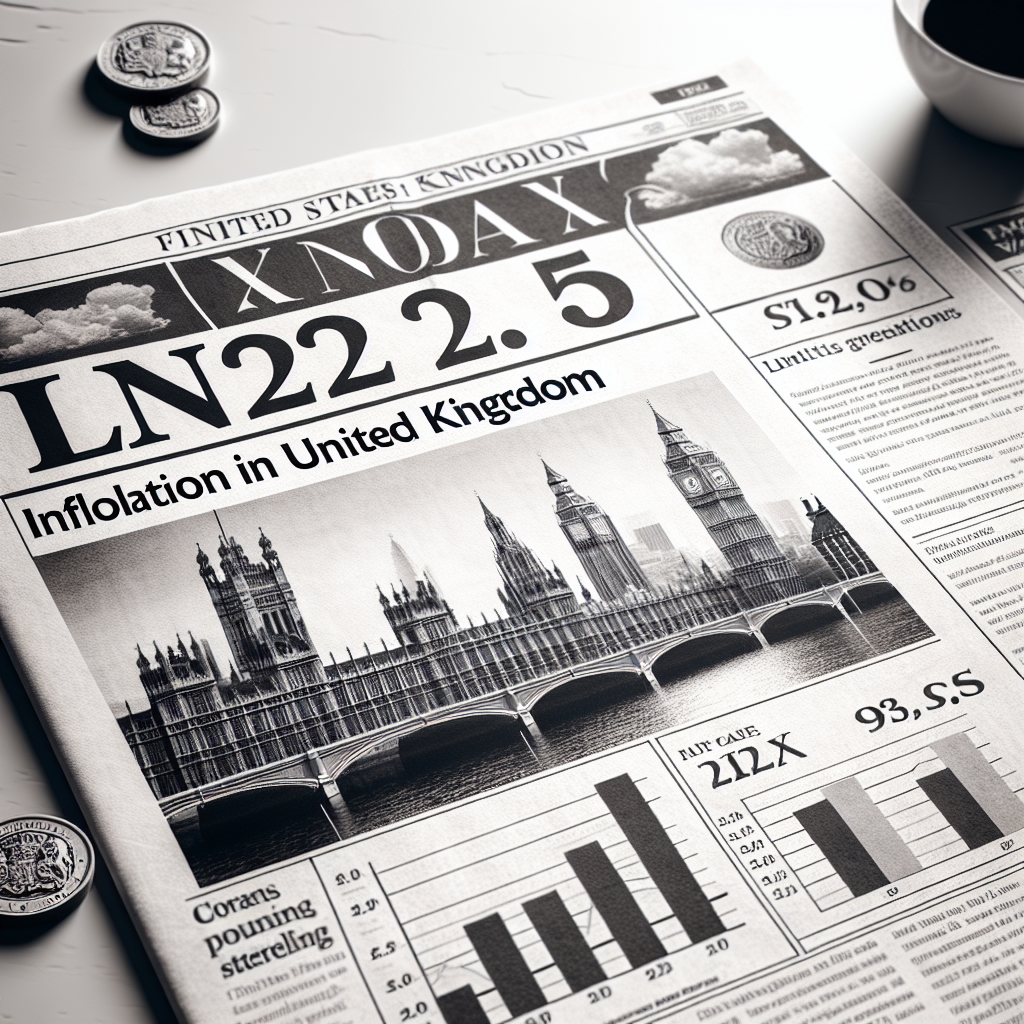Inflation in the UK: Insights and Projections for 2025
As we delve into the inflation landscape of the UK for 2025, it’s essential to understand the underlying factors that will shape economic conditions. Inflation rates are projected to fluctuate as various components such as energy prices, consumer demand, and supply chain dynamics continue to evolve. According to recent data gathered by our Market News Monitor agents, we anticipate that inflation could stabilize around 3.5% by mid-2025, following a period of volatility in 2023 and 2024.
One of the primary contributors to this inflationary cycle is the ongoing geopolitical instability affecting energy prices across Europe. As the UK seeks energy independence and transition toward renewable sources, consumers might experience continued price shifts in utilities and fuel. Understanding these trends will be crucial for businesses and individuals alike, as higher living costs can impact disposable income and spending patterns.
Key Insights from Data Analysts
-
Consumer Price Index (CPI): Current forecasts indicate that CPI will rise moderately due to an increase in food prices and transportation costs. With a predicted annual rate of around 3.5%, consumers must prepare for possible shifts in their purchasing behavior as key items become more costly.
-
Wage Growth: In response to rising living costs, wages are expected to incrementally increase. While wage growth may not fully match inflation in the short term, it’s crucial for employment sectors to remain competitive and retain talent.
For further information on how your budgeting tactics could align with these inflation predictions, consider exploring financial planning resources available on Money Advice Service.
Strategic Recommendations for Consumers
1. Re-evaluate Your Budget
The impact of inflation on everyday spending cannot be understated. With prices on essential goods rising, it’s wise to revisit personal budgets. Focus on prioritizing needs over wants, and seek alternatives that might offer savings such as local markets or seasonal produce.
2. Diversify Investment Portfolios
For investors, adapting to inflation means reassessing asset allocations. While stocks may have robust growth potential, commodities and real estate might serve as solid hedges against rising prices. Consulting with a financial advisor could provide tailored strategies to optimize investment returns amidst these changes.
Community Engagement and Conversations
We aim to foster a dialogue around inflation and its repercussions. Share your thoughts and experiences regarding price changes in your area or any strategies that have worked for you in maintaining your financial health. Engage with us on social media using the hashtag #UKInflation2025.
Here’s a snapshot of what we’re seeing in ongoing discussions:
– Community members have expressed concerns about housing affordability.
– Others are discussing potential provisions from the government to assist lower-income families.
By participating, you’ll not only gain insights but also contribute to a collective understanding of navigating inflation as a community.
In conclusion, as the UK navigates the complex challenges posed by inflation in 2025, our focus should be on proactive engagement. Whether that’s through smart budgeting or diversification in investment strategies, it’s imperative to stay informed and adaptable. We will continue to monitor these developments and provide you with timely updates and strategies catered to your financial well-being.
